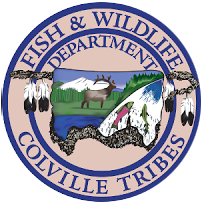Welcome to the Colville Tribes Climate Change Page
This page is maintained by the Colville Tribes Climate Change Planning Group and is provided as an education and outreach resource for those who wish to learn more about climate change and the ongoing work of the Tribe’s Climate Change Steering Committee. Our goal with this page is to increase understanding of the current and projected climate change impacts on the reservation and within our traditional territories, and to assist departments and individuals in developing effective adaptation strategies. You are encouraged to visit the links on this site to learn more about climate change and how you can get involved.
What is Climate Change?
Climate change refers to long-term shifts in weather on a global scale or for a particular region. When we speak of weather, we’re speaking about discrete observations of the weather outside right now. Climate refers to long term trends in weather. Climate studies take into account thousands of weather observations over time and uses statistical analysis to identify long term trends.
The past eight years are on track to be the eight warmest on record, fuelled by ever-rising greenhouse gas concentrations and accumulated heat. Extreme heatwaves, drought and devastating flooding have affected millions and cost billions this year, according to the World Meteorological Organization’s provisional State of the Global Climate in 2022 report.
Snow is an important temporary storehouse for winter precipitation. When it melts, after days, weeks or months, the water fills rivers and lakes. It replenishes groundwater reserves, which are essential for drinking water supply and agriculture. For migrating fish, access to cooler snow water increases the likelihood that summer-migrant salmon and steelhead may successfully complete their life cycle. For more information on the status of current snow pack CLICK HERE (USDA, Washington Snowpack Maps and Graphs).
Climate-Related Degree Programs in the Northwest
The Northwest Climate Science Center (NW CSC) combines academic expertise with federal resources to advance climate science development and delivery for managers and policy makers in the Northwest region.
In 2010 the NW CSC was established by the U.S. Department of the Interior (DOI) to help safeguard the region's natural and cultural resources by providing managers and policy-makers across Washington, Oregon, Idaho and Western Montana with timely, relevant, accessible climate science. The NW CSC is one of eight regional DOI Climate Science Centers across the country coordinated through the National Climate Change and Wildlife Science Center of the U.S. Geological Survey (USGS)







